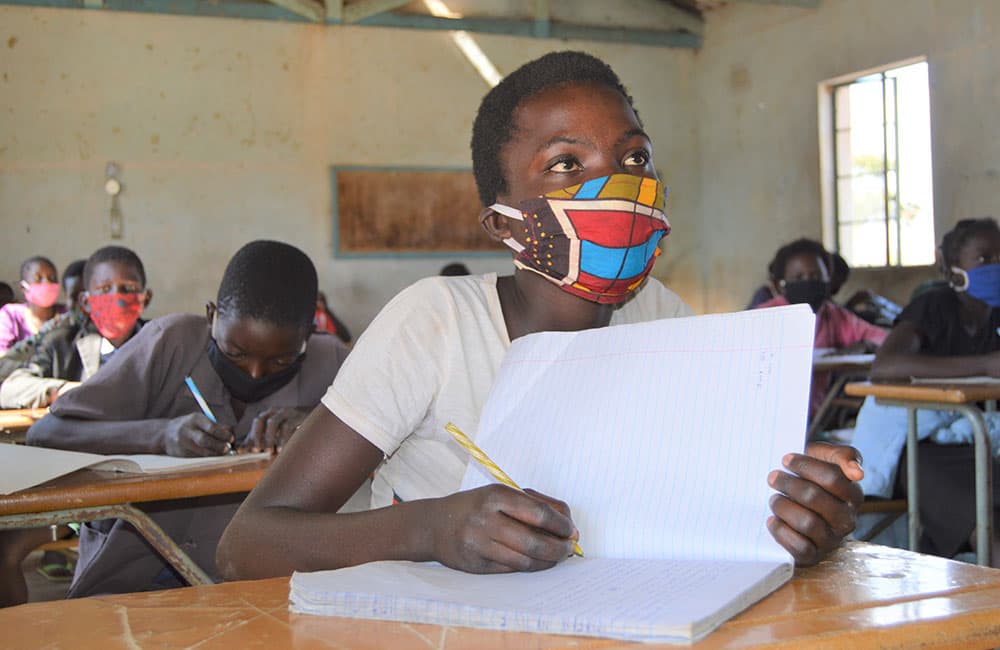Together, we need to protect children from being a “lost generation”
It’s been a year since COVID-19 was declared a pandemic and for children, COVID-19 has changed everything they knew. Cut off from friends and family, seeing parents worried about losing their jobs, and shuttling between remote learning and school - growing up in a deadly pandemic can be frightening, and for some children this kind of distress causes lifelong harm.
Missing school, meals and the chance of a better future
When Mutinta’s* school in Zambia closed because of COVID-19, it didn’t just mean that she and her classmates would miss out on vital education, they also missed out on nutritious school lunches provided by Save the Children through their school feeding program. With the drought making it hard to grow crops at home, those school lunches were sometimes the only meal Mutinta would eat in a day.
Away from school, and under pressure to survive, some of Mutinta’s friends were married off. Others moved away and can no longer continue to attend school. “During the period when schools had closed some girls got married like my friend who got married but was called back to school by the headmaster. My other friend refused to return to school,” she explains.
Save the Children was able to provide ‘take home’ food packs for families like Mutinta’s, so they could continue to receive nourishing food while schools are closed. We also ran radio campaigns to raise awareness of the virus and how to protect yourself and your family. Now with schools reopening, Save the Children is providing hand washing facilities for schools.
Mutinta is part of the 1.1 million children in Zambia being allowed back into schools to finish their exams. She has to wear a face mask and she’s scared of contracting the virus. But she dreams of supporting her parents in their old age. “When I grow up, I want to help my parents and others who are not working. I want to be a nurse when I grow up so that I can help take care of the sick such as those who are suffering from cancer and HIV. Some people have died from these diseases in my family.”

Mutina is happy to be back at school after coronavirus restrictions cut of her access to education and nutrition.
Photo: Malama Mwila/Save the Children
To win the war against the pandemic, children must come first
Today, one year on, we’re working together with children to beat the virus and the impact is has had on their lives, work made possible by our supporters and partners.
In May 2020, Save the Children released a global response plan to COVID-19, and since then, with the help of our supporters and partners, we have changed the lives of close to 30 million people affected by coronavirus, including 12 million children.
Vaccines bring hope, but there is more work to do. The pandemic came at a time when millions were already going hungry and missing out on learning at school. We have to build a better, fairer world if we want to prevent the 2020s from becoming a ‘lost decade’ of tragic reversals in newborn, child and maternal health; in lifting families out of poverty; in education for all; and inequality for girls and women.
We may win the battle against the virus, but will lose the war against the pandemic for a generation if we do not ensure that children get back to school safely, have enough food to eat and are protected. We owe it to Mutinta, and children like her who are fighting for survival, to get this right.